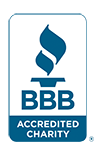NewsOne: Gentrification Shaping Entrepreneurship In Harlem
Editor’s note: This is the second installment of NewsOne’s two-part examination of Black business in Harlem. In Part 2, NewsOne explores the impact of gentrification on Black businesses in Harlem. In Part 1, NewsOne examined Harlem’s vibrant Black start-up scene.
A multiracial set of business people and techies—some in suits, others in shirt-sleeves, jeans and the latest top of the line sneakers—gathered on a Friday morning in late October at Mist Harlem, a café and event space on West 116th Street in Manhattan.
They were attending the annual conference of Silicon Harlem’s annual conference, a for-profit company that is laying the groundwork, both human and technological, to transform Harlem into a thriving tech hub. Microsoft, Verizon, are just two big names that attended the event.
“Entrepreneurialism is on the rise everywhere, and Harlem is one of the hotbeds,” co-founder and CEO of Silicon Harlem Clayton Banks told NewsOne.
Indeed, it’s impossible to look at the growth of entrepreneurship in Harlem without addressing the impact of gentrification.
The historic community, which has a long history of Black entrepreneurship, has become a magnet for people who are not part of the traditional fabric of the community. Not long ago, it would have been rare to see White people in the community, known for spawning Black political powerhouses such as Adam Clayton Powell Sr., Adam Clayton Powell Jr., the Rev. Calvin O. Butts, and longtime Congressman Charlie Rangel.
But over the last decade, a dearth of affordable housing in Manhattan and a depressed housing market in Harlem have prompted interlopers of all stripes to move into the community. Now, luxury condos pierce the landscape amid housing revitalization efforts, Whole Foods is scheduled to open on 125th Street. And skyrocketing rents have forced many longtime and low-income Black residents to pull up stakes.
To be sure, the revitalized, increasingly diverse community attracts business people who do not live in Harlem. Banks describes what’s going on in Harlem as a natural evolution.
“We have been known for mom and pop shops in this village for years,” he stated. “So, it’s a natural progression for people to take advantage of this new economy—the sharing economy, digital economy, on-demand economy, innovation economy—and nurture it here in Harlem.”

Source: Nigel Roberts / Silicon Harlem CEO Clayton Banks gives opening remarks at the organization’s annual convention
But to Banks, the gentrification is economic—not race-based. He points to many Black acquaintances who have relocated to Harlem and bought million-dollar brownstones.
Whether it’s race-based or grounded mostly in economics, a new wave of residents is impacting new businesses and the people who own them.
John Henry, 23, is a Harlem entrepreneur. He started Mobile City, a tech-based concierge business, in 2012. Henry sold the company for a nice sum and has now turned his sights to venture capital and real estate technology tied to the community.

Source: Aurora La Luna / John Henry
He’s also the managing director of Cofound Harlem, one of the community’s newest business incubators.
The Harlem Business Alliance, which advocates and nurtures Black-owned business and has been a cornerstone in the community for three decades, has a different take: gentrification is taking a toll on Harlem’s established Black-owned businesses.
“Our businesses have been dying so fast that we can’t keep up with the count, and there aren’t enough new ones to replace them,” said Walter Edwards, Harlem Business Alliance chairman. “Many of us are doing battle, rolling up our sleeves to make sure Black people still have a piece of the action. Some of my colleagues are talking about a legacy—if this corner is mine, I’m going to hold onto this. We’re going to come and help you hold onto this.”
The organization’s executive director, Regina Smith, added that there’s a lot of buzz online about the booming entrepreneurship in Harlem, but most of them are not Black-owned.
Smith said many of the community’s longtime business owners are struggling with access to credit, rising rent and other issues that make it challenging to continue doing business in Harlem.
In the community’s business development ecosystem, Henry views Cofound as a “generalist” incubator.
“We didn’t want to be like other programs that specialize,” he said. “We want to attract companies from anywhere and everywhere, irrespective of skin color. It doesn’t matter, as long as you make a commitment to stay in Harlem.”
At the Oct. 21 conference, Adam Neumann, the co-founder and CEO of the shared workspace company WeWork, announced a new partnership with Silicon Harlem. The $16 billion company, which is slated to open a Harlem co-work space in December 2016, is launching Mission Possible.

Source: Nigel Roberts / Adam Neumann announces the launch of Mission Possible
Through the initiative, entrepreneurs will receive up to 12 months of workspace at the Harlem location, as well as mentorship from industry experts. It’s sure to draw scores of people to Harlem who dream of becoming business owners.
Meanwhile, the Harlem Business Alliance is preparing young Harlem residents to be part of community’s burgeoning tech hub. Smith said she’s optimistic about the young people participating in the organization’s business development programs. And the young business people, she said, are keen to get their piece of the pie.
READ AT NEWS ONE



